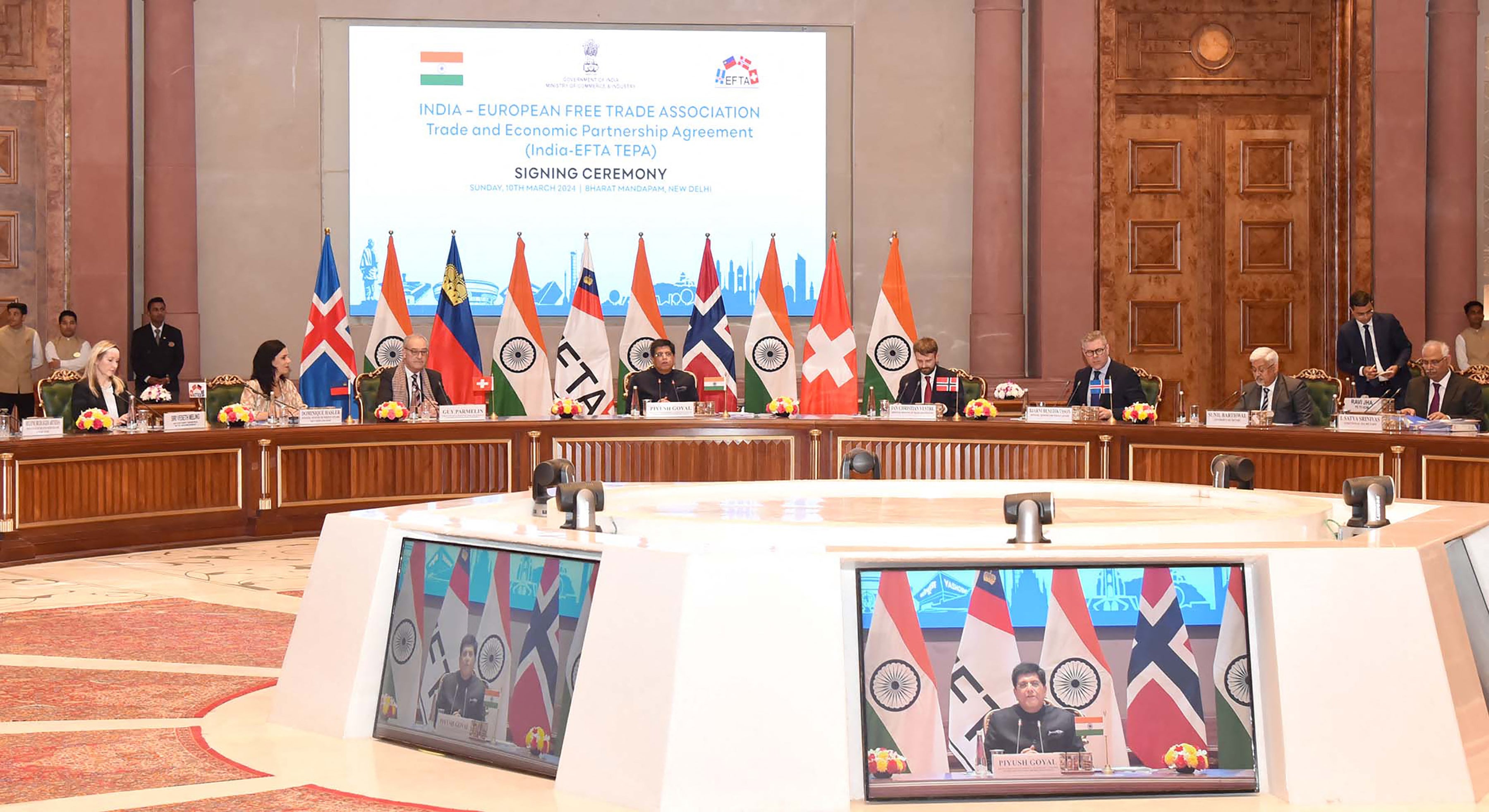India warns UK not to impose deadline on trade talks

India warned the UK against imposing a deadline on the already stretched-out trade talks as it remained optimistic about closing the deal "very quickly" with the new Labour government.
Britain's post-Brexit free trade negotiations with India, which began in January 2022 to double trade between the two countries to £86bn by 2030, were stalled this year due to general elections in both nations.
The talks are scheduled to resume this month to resolve pending issues, according to local reports.
The two nations were "pretty much on board on most of the issues we have discussed", Indian trade minister Piyush Goyal told The Financial Times ahead of his British counterpart's visit to New Delhi.
Mr Goyal said the Labour government should not repeat a mistake made by Boris Johnson when the then-prime minister rushed the free trade agreement (FTA). The British government had committed – first under Mr Johnson – to reaching a trade deal with India by Diwali 2022, but negotiations were derailed by comments made by Suella Braverman about Indians overstaying their UK visas.
“India does not believe any [free trade agreement] should have a deadline for negotiations,”Mr Goyal told the newspaper. “We never discuss any FTA with any country or group of countries with a gun [to] our head.”
With the trade deal, India hopes to increase exports of leather, jewellery, textiles, and food products, with post-study work visas and immigration for Indians to the UK as big areas of priority.
Britain aims to double its total exports to India, up to as much as £28bn a year by 2035, thereby increasing wages across the UK by up to £3bn. The UK also wants an agreement that includes cutting tariffs on exports of British-made cars and Scotch whisky.
The India-UK FTA talks have hit several roadblocks and the ambitious pact now stands delayed by over a year from its previous deadline. The deal is reportedly being held up by a variety of issues, including a disagreement over the number of visas for Indians to work in the UK and differences over the level of access British car manufacturers should be given to India’s market.
Besides tariffs, Britain has also reportedly pushed India to agree on strong investment-protection provisions either as part of the deal or in a parallel investment treaty.
Officials involved in the 14th round of negotiations claimed that the majority of issues in the proposed FTA were either finalised or were at an advanced stage of discussion.
Britain's newly-elected prime minister Keir Starmer during his call with his Indian counterpart, Narendra Modi, last week said he "stood ready to conclude a deal that worked for both sides".
Mr Goyal said he had secured commitments from Labour prior to the elections that they could continue negotiations after forming the government but noted that the deal had to be “equitable, fair and balanced”.
He told The Financial Times that the deal is “something which is ready to be closed very quickly, but that it could take very long also”.
Mr Goyal said: “Personally if you ask me, in the FTA I don’t find any big issue left, except that we have opened up very significantly on the services side, contingent to certain commitments that we expect from the UK.”
Any deal needs “a fair balance, given our different size of population, given our different aspiration levels, given our different growth projections”, he added.
Join our commenting forum
Join thought-provoking conversations, follow other Independent readers and see their replies
Comments
Bookmark popover
Removed from bookmarks